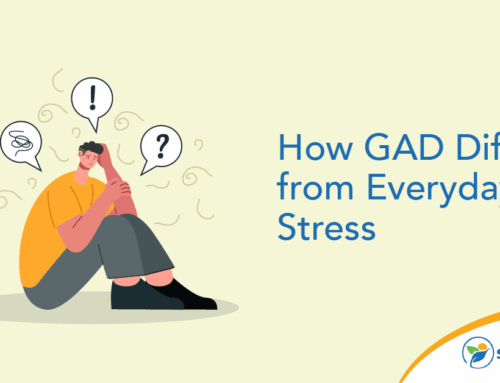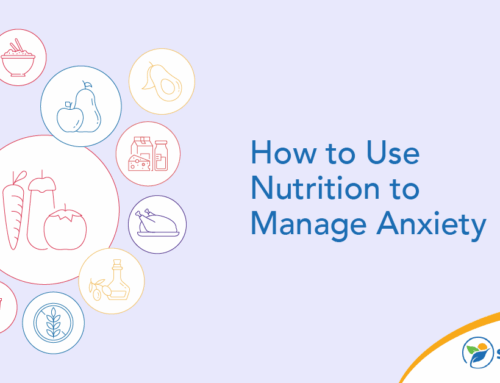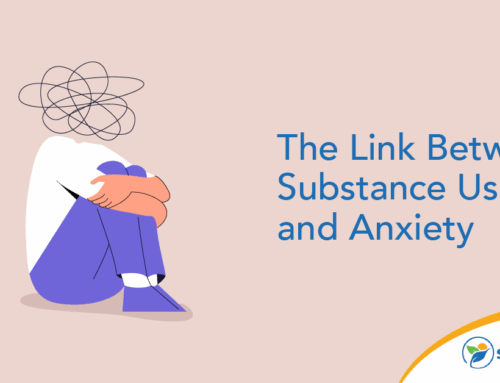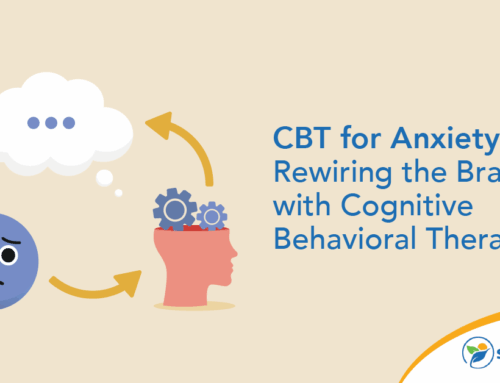Diabetes is a chronic illness that affects every area of your life. From what and when you can eat to your general physical health, everything can change with a diabetes diagnosis. Diabetes and mental health also go hand in hand because such a major change is challenging for anyone. Plus, physical changes can often affect mental health. Any illness that affects hormone levels or vitamin absorption can also show in changes to your mood and emotional regulation.
The Intersection of Diabetes and Mental Health: Understanding the Link Between Physical and Emotional Well-Being
How you feel physically impacts how you feel mentally, and vice versa. Eating a healthy, well-balanced diet and getting enough physical activity in your day can drive positive changes in your mood and mental health. But these same changes can also improve your physical health.
Poor mental health often leads to declining physical health. For example, fatigue is a common issue for those with depression and anxiety, which can lead to worsening physical condition. Poor conditioning can then make depression worse by making formerly fun activities more challenging.
The psychological effects of diabetes can make it more difficult to effectively manage your condition. Getting a diabetes diagnosis can set off depression and anxiety. After all, diabetes is expensive to manage and requires you to monitor your blood sugar and what you eat. You may not be able to regularly enjoy preferred foods or may be faced with major lifestyle changes that seem insurmountable in the beginning.
From a physical perspective, diabetes can come with a host of physical effects, ranging from pain in your extremities to worsening eyesight. With every negative outcome, you might find yourself facing a downward spiral of mental illness. Mild depression may increase to moderate or severe, and you could develop anxiety surrounding your diabetes management.
It’s also not uncommon for those with diabetes to develop eating disorders. Severely restricting carbohydrates and eliminating dessert entirely are both examples of potentially disordered eating. Eating any highly restrictive diet along with emotional dysregulation is a form of disordered eating. For diabetics, this restricted eating is required for long-term health and management, but it can become disordered eating when someone with diabetes starts to obsess over diet compliance. Over time, this obsessive behavior can increase in severity to become an eating disorder. According to the American Diabetes Association, bulimia is the most common eating disorder among women with Type 1 diabetes, while binge eating disorder is more common among women with Type 2 diabetes. Women are more likely to develop eating disorders than men, even with the heavy restrictions sometimes placed by effectively managing diabetes.
Anxiety and Diabetes: Exploring the Anxiety-Inducing Factors Related to Diabetes Management
Having to perform a series of complex tasks daily to avoid major health consequences and taking expensive medications for the rest of your life can become major stressors and cause anxiety. If your diabetes doesn’t respond well to your control strategies, that can make things even worse.
Medical anxiety is fairly common. In fact, it’s common enough to cause the illness known colloquially as “white-coat syndrome,” where patients have high blood pressure readings and other elevated vitals due to the anxiety they feel in medical settings. With a diabetes diagnosis, or any chronic illness that requires daily management, the medical anxiety follows you home.
In addition, there’s a lot of stress surrounding the idea of low blood sugar and the resulting medical emergency that can follow. Changes to your blood sugar levels can also impact your mood and make you feel anxious without much warning. The way diabetes and mental health interact with physical health can create major challenges in getting a diagnosis and treatment.
Depression and Diabetes: Examining the Impact of Chronic Illness on Emotional Health
Depression is a natural response to bad news. Getting a diabetes diagnosis definitely qualifies. While diabetes is a very manageable condition, the sudden change is difficult for anyone. Feeling down after the diagnosis isn’t uncommon. Unfortunately, neither is that down feeling persisting for months at a time and possibly getting worse. Those with a diabetes diagnosis are 2-3 times more likely to have depression, and only a fraction of those get diagnosed and receive treatment.
When in a period of depression, you might feel tired, struggle with changes to your appetite or notice difficulties maintaining concentration. All of these can interfere with your daily life, and severe depression may also come with suicidal ideation or attempts to self-harm.
Managing your diabetes and your mental health takes commitment, as well as help and support from both your friends and family and your medical providers.
Diabetes Distress: Discussing the Unique Psychological Challenges Faced by Individuals With Diabetes
When you first get a diabetes diagnosis, it’s normal to feel overwhelmed. You’ll suddenly have more doctor’s appointments and medications to manage. You may be caught up in trying to make lifestyle changes, which can also affect your relationships with friends and family. When feeling overwhelmed turns into feelings of frustration and defeat, you’re likely going through a period of diabetes distress.
Diabetes distress tends to come and go over the years. After all, no management technique is perfect, and you’ll likely have to make many changes to your routines if your health declines with age. Finding ways to continue practicing self-care through periods of diabetes distress is critical to your well-being.
Holistic Care: Emphasizing the Importance of Addressing Mental Health Alongside Diabetes Management
Because diabetes dramatically increases your risk of developing a mental health condition, it’s important to work with a team of providers who focus on the whole person. Your endocrinologist might be closely watching your blood sugar, but your therapist and psychologist are the providers watching out for your mental health.
Starting a physical fitness program might require help from a physical therapist, while a dietitian can help with blood sugar management through the foods you eat. Ultimately, for the best results and lowest risk of a diabetic emergency, it’s important to treat every aspect of your illness, both mental and physical.
If you have a diabetes diagnosis and are feeling defeated or hopeless, reach out to Sunlight Recovery. We can help you get through your roadblocks and address the mental health issues that so often crop up with diabetes.







